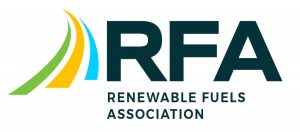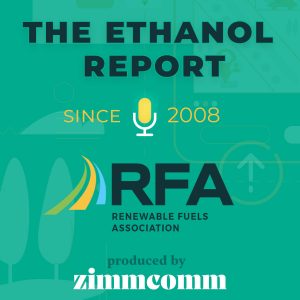 Biodiesel is ready now to meet the goals of the Agriculture Innovation Agenda. That was the message that the National Biodiesel Board gave to the U.S. Department of Agriculture (USDA) in comments last week on “’ready to go’ technologies, practices, and management approaches to benefit farmers, consumers, and the environment.”
Biodiesel is ready now to meet the goals of the Agriculture Innovation Agenda. That was the message that the National Biodiesel Board gave to the U.S. Department of Agriculture (USDA) in comments last week on “’ready to go’ technologies, practices, and management approaches to benefit farmers, consumers, and the environment.”
NBB Vice President of Federal Affairs Kurt Kovarik wrote in his comments, “Biodiesel is ‘ready to go’ and adoptable. The reliability and dense energy storage capacity of liquid fuel simply cannot be replaced for many vital sectors. Diesel fuel powers the heavy-duty trucks, trains, vessels, and aircraft essential to our economy. Diesel also powers agriculture and construction equipment vital to providing human necessities. Diesel powers most equipment needed for public safety such as ambulances, firetrucks, the military, snow removal, and emergency backup for electrical generation. While we expect that numerous strategies can reduce the total volume of liquid fuel consumed for transportation, we will need liquid fuel for certain purposes for at least several decades.”
USDA’s Ag Innovation Agenda (AIA) is an effort to align the agency’s resources, programs, and research to provide farmers with the tools they need and to position American agriculture as a leader in the effort to meet the food, fiber, fuel, feed, and climate demands of the future. Specifically, USDA will stimulate innovation so that American agriculture can achieve the goal of increasing U.S. agricultural production by 40 percent while cutting the environmental footprint of U.S. agriculture in half by 2050.
USDA issued a request for information on its Agriculture Innovation Agenda back in September and the deadline for comments was last week.
 The National Association of Farm Broadcasting (NAFB) is holding its annual convention this week, and like everything else it is virtual. One of the newsmaker sessions on opening day of the convention focused on ethanol and biodiesel and “Agriculture’s Contributions to the Energy Market.”
The National Association of Farm Broadcasting (NAFB) is holding its annual convention this week, and like everything else it is virtual. One of the newsmaker sessions on opening day of the convention focused on ethanol and biodiesel and “Agriculture’s Contributions to the Energy Market.”

 The
The  The
The  The president and CEO of
The president and CEO of  Biodiesel is ready now to meet the goals of the Agriculture Innovation Agenda. That was the
Biodiesel is ready now to meet the goals of the Agriculture Innovation Agenda. That was the  The November
The November 

 Environmental Protection Agency (EPA) Administrator Andrew Wheeler has confirmed that the agency will delay action on dozens of outstanding Small Refinery Exemption petitions until after the Supreme Court rules on an appeal from refining companies over EPA’s waiver policy.
Environmental Protection Agency (EPA) Administrator Andrew Wheeler has confirmed that the agency will delay action on dozens of outstanding Small Refinery Exemption petitions until after the Supreme Court rules on an appeal from refining companies over EPA’s waiver policy.  Mary Kay Thatcher, Senior Manager of Federal Government and Industry Relations for Syngenta, provided her perspective on the “churn of the election” during the company’s media summit this week. She does expect the presidential outcome to drag on for a while, but during her presentation, Thatcher used the assumption of a Biden presidency for her outlook.
Mary Kay Thatcher, Senior Manager of Federal Government and Industry Relations for Syngenta, provided her perspective on the “churn of the election” during the company’s media summit this week. She does expect the presidential outcome to drag on for a while, but during her presentation, Thatcher used the assumption of a Biden presidency for her outlook.